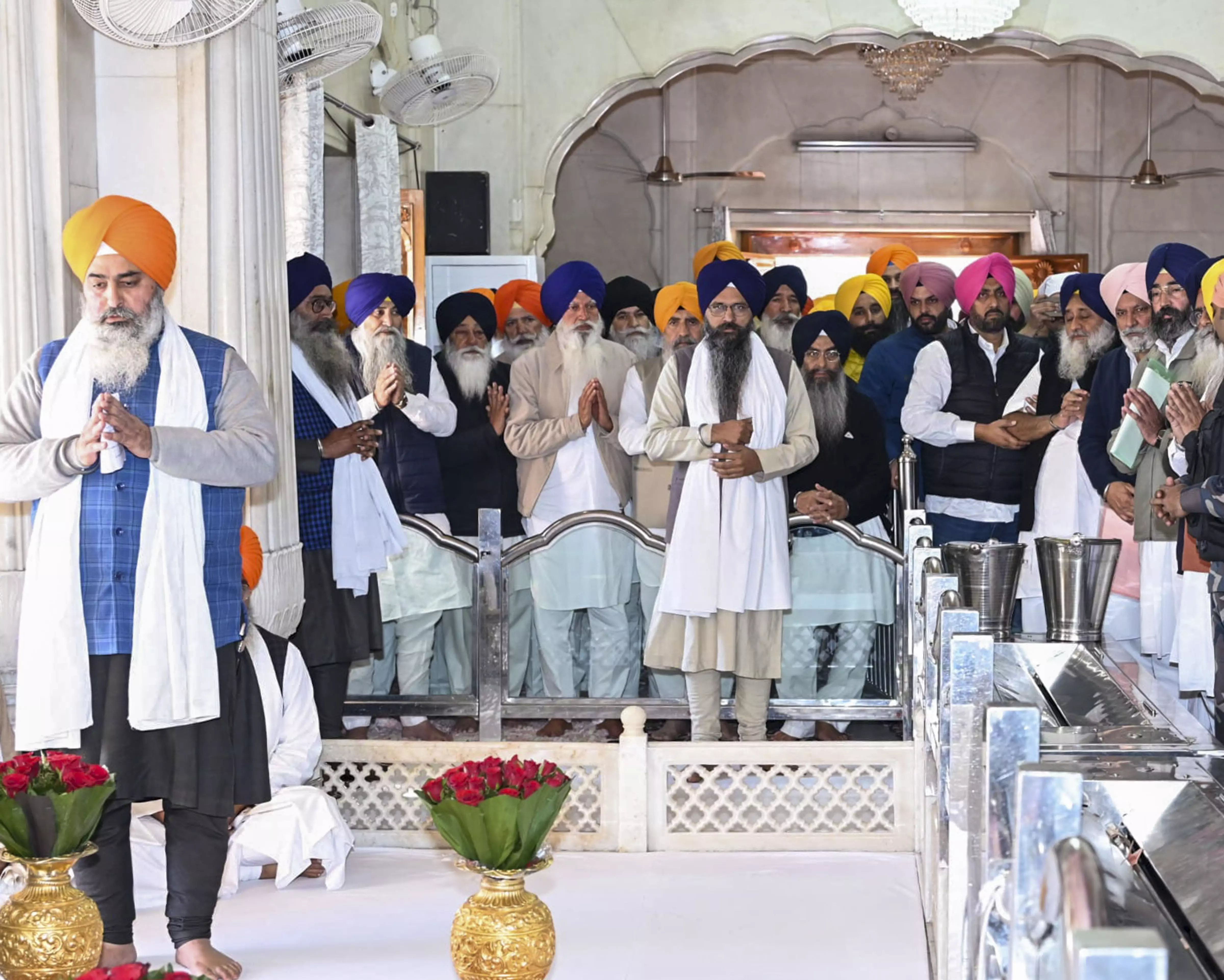Kamal Davar | Strict watch on the challenge of ‘Khalistan’ is vital in Punjab

Some weeks ago, former Punjab deputy chief minister Sukhbir Singh Badal, undergoing religious penance at the holy Harmandir Sahib in Amritsar’s Golden Temple, survived an assassination attempt on his life when a former ageing “Khalistan” terrorist, Narain Singh Chaura, fired at him. Thanks to an alert police sub-inspector, Mr Badal was saved as the round went astray. While the Punjab police successfully thwarted the attempt on Sukhbir’s life, a can of controversies has opened up on the motive behind this unexpected event.
Many conflicting theories have emerged at this unfortunate occurrence inside the shrine in full view of the Punjab police, who were fully conversant with the infamous history and whereabouts of the alleged would-be assassin.
All plausible angles on this event need serious introspection, including those pointing to personal enmity or the “Khalistan” angle to it, or as some in the Punjab Police claim, the possible “staged-management” of this event to garner sympathy for the fading fortunes of the Shiromani Akali Dal. As the police and other security agencies delve deeply into the nuances of this crime, it will be in the larger security interests of the nation to analyse any “Khalistan” conspiracy angle.
The fact remains that though India’s most strategic border state of Punjab is relatively peaceful, with no inter-societal or internal security problems, yet the mischief played in the 1980s by the rogue state of Pakistan in Punjab can’t be taken lightly and the careful, regular monitoring of the activities in Punjab of Pakistan’s Inter-Services Intelligence must be ensured. It must also be accepted by our political and security establishment that there has been, in recent years, a discernible rise in sympathy for the “Khalistan” secessionist movement among India’s Sikh diaspora with some support from the governments of Canada, and to a lesser extent from that of the United States and Britain. These governments’ claims about freedom of speech and allowing protests in their societies fails to stand scrutiny as some in the Indian diaspora have misused these freedoms to vandalise temples and target Indian diplomatic missions.
What is amply clear is that Pakistan’s ISI appears to have revived its “K2” (Kashmir and Khalistan) strategy, which was pioneered by military dictator Gen. Zia-ul Haq in the early 1980s when he realised it was impossible to otherwise wrest Jammu and Kashmir from India and foment a credible separatist movement in India’s Punjab. That in both places the patriotic people of Punjab and even the Kashmiris had not succumbed to Pakistani machinations is a historical fact. India also cannot forget that, to some extent, Sikh extremism did occur in Punjab in the 1980s, while terror attacks do take place in J&K at times triggered by Pakistani agents. In both Punjab and J&K, however, the overall security situation is normal.
Since Independence, barring short interludes during the time of Prime Minister Liaqat Ali Khan (later assassinated) and for around three years when Gen. Pervez Musharraf was both Chief of Army Staff and President, Pakistan with its myopic and self-destructive policies has maintained an anti-India policy in all its politico-strategic formulations. The “K2” dream still persists in their mindset and that of the Sikh diaspora, and even Sikhs in Punjab continue to be targeted by the ISI’s propaganda machinery. India, therefore, has to ensure through a “whole of nation” approach to counter these designs by Pakistan and some other countries, such as Canada. The Sikhs are among the most patriotic, gallant and industrious communities of India, who whenever given a chance, will raze to the ground any anti-India elements.
The Indian government, however, has to implement a well-thought-out strategy to counter the anti-India propagandas both at home and abroad. Sooner rather than later, India must send out delegations comprising eminent Sikhs from different walks of life in India to the Western nations where the Sikh diaspora resides. These delegations should re-educate those affected Sikh elements regards the commonality and blood
relationship of the Hindu and Sikh faiths and for them not to succumb to the evil machinations of Pakistani or other foreign agents. The sacrifices of our Sikh brethren in preserving the integrity of India must be given its rightful share in our history. The genuine problems and aspirations of the farmers, a large number of whom are Sikhs, should be sympathetically addressed by the government with alacrity. The Sikh diaspora often gets unnecessarily agitated over farmers’ issues in India.
Regarding the assassination bid on Sukhbir Badal, the Punjab police investigating the case, the Badal family and the SGPC are locked in a verbal war on the reasons behind the assassination bid. CCTV footage shows that Narain Singh Chaura and two “accomplices” had carried out a recce of the Golden Temple premises a day earlier and Mr Badal’s brother-in-law, Bikram Majithia, has alleged that the SGPC president had hugged Narain Singh before the shooting incident and thus asked the SGPC to release the entire CCTV footage. The Punjab police feels that it may be a “lone wolf” incident, whereas the Badal family thinks that there is a deeper conspiracy.
It will ultimately be prudent for the Central government to go deep into this incident and have a reputed outfit like the National Investigation Agency probe the case. A simmering “Khalistan” emergence abroad exists -- for the time being – and thus it will be prudent for India’s security and intelligence establishment to keep a strict watch inside Punjab for India cannot afford to have a re-enactment of the conditions in India’s crown jewel state of Punjab as had taken place in the mid-1980s.

